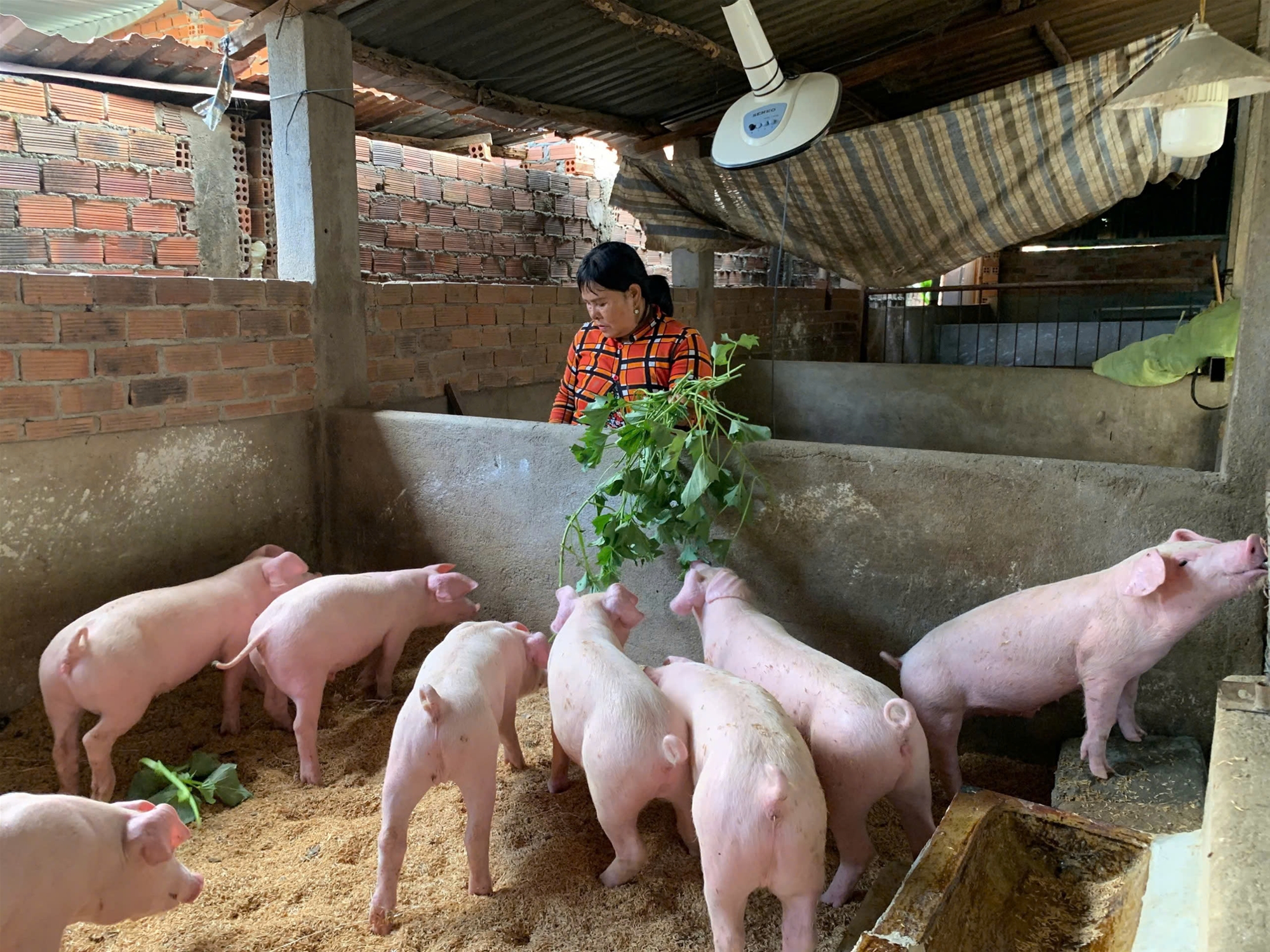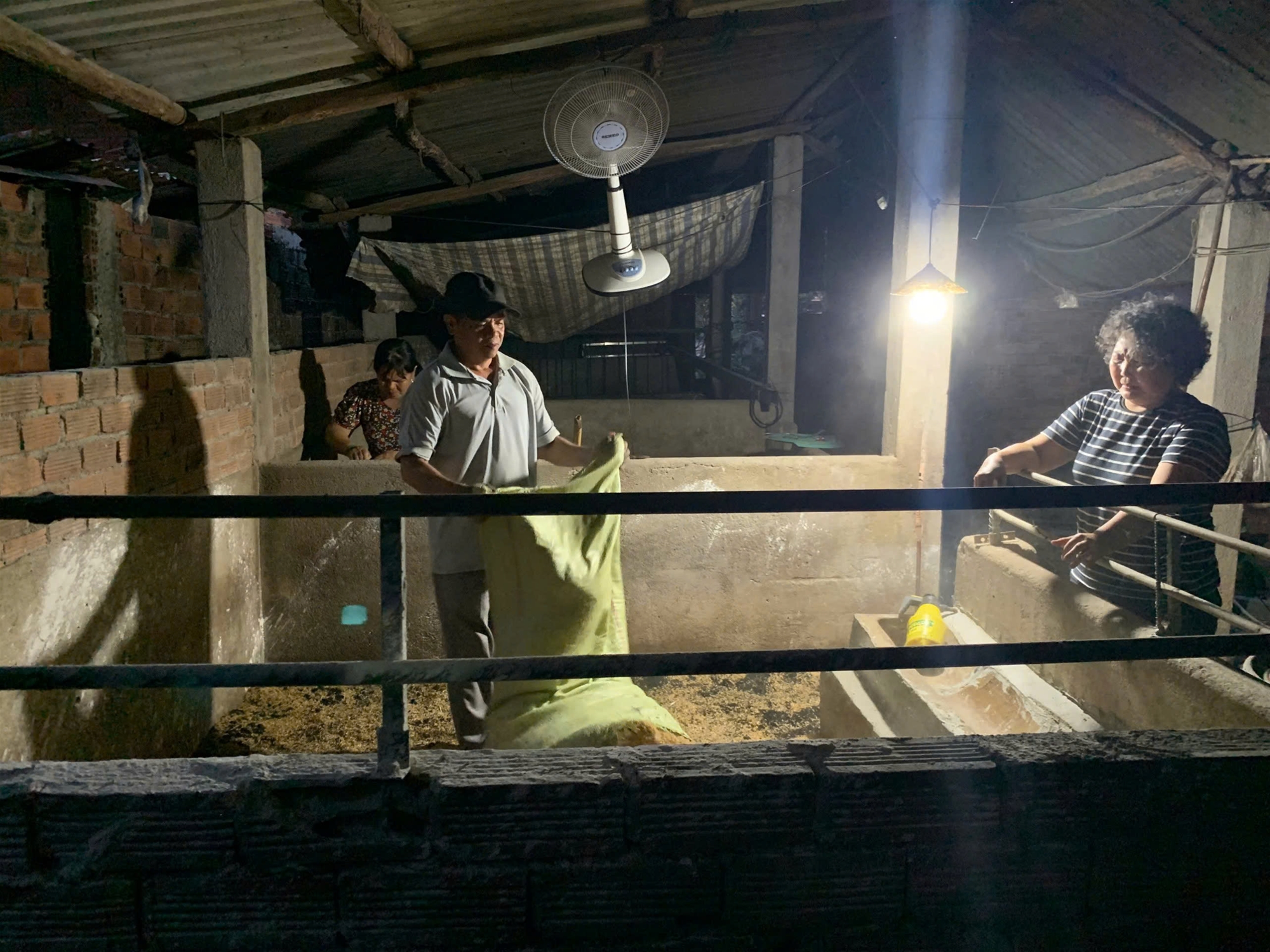In Vietnam, raising pigs in residential areas is not completely prohibited, but it is strictly regulated and subject to specific legal limitations. Especially in urban areas, densely populated neighborhoods, or land designated for urban housing, pig farming is often banned or discouraged due to its potential negative impacts on the living environment. Common concerns include unpleasant odors, noise, sanitation issues, and the risk of disease outbreaks. During the dry season, water shortages further complicate hygiene and livestock care.

Given these challenges, small-scale pig farming by households seeking to improve their income can benefit from the eco-friendly pig pen model, which offers a practical and appropriate solution. This model reduces labor demands—especially when water is scarce—as it eliminates the need for daily cleaning and bathing of pigs. It also helps minimize common pig diseases such as hemorrhagic septicemia, hoof lesions, and mastitis. Pigs raised in these eco-pens exhibit better health, are more active, sleep well, and show signs of comfort.

In addition to benefits for animal welfare, the model incorporates a biological bedding system made of rice husks, manure, microbial additives, and biochar. After the rearing cycle, this bedding can be repurposed as organic fertilizer for crops or sold, providing additional economic value for farmers.
Currently, this eco-pig pen model is being piloted at Ms. Liền’s household in Đức Linh District, featuring two eco-pens and a herd of 18 market pigs. This pilot project serves as an important step toward evaluating the model’s effectiveness and its potential for broader adoption in residential areas.
